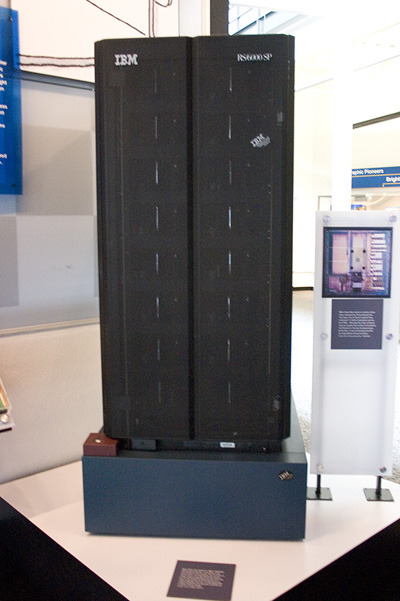Advances in artificial intelligence were initially seen as an uncomplicated boon to mankind. But almost every day now, positive reports about developments are interspersed with voices warning about impending AI-caused disaster as the technology damages the education system, replaces human journalists with bots, and threatens to put people out of work. How did we get here? Oliver Tedja reports.
AI’S IMPACT COULD BE “bigger than the Industrial Revolution”, experts say. In recent times, this revolutionary technology has become ubiquitous, used in a wide range of applications, from voice assistants like Siri and Alexa to recommendation algorithms on platforms like Netflix and Amazon.
We have also seen AI used in autonomous vehicles, medical diagnostics, and more.

Significant progress has been made in natural language processing, enabling AI to understand, generate, and respond to human language in a way that is increasingly indistinguishable from a human. For example, OpenAI’s GPT (above) is capable of generating impressively coherent and contextually relevant sentences and passages.
There are also incredibly advanced text-to-image applications with platforms like DALLE and Mid-journey (below). A simple prompt with only a few words or sentences can create an impressive hyper-realistic art piece.

AI has also made strides in computer vision, with algorithms now able to identify and classify images accurately, often surpassing human performance. This has enabled advances in areas such as facial recognition, autonomous vehicles, and medical imaging analysis.
THE EARLY YEARS
AI as a field officially began in 1956 at the Dartmouth conference, where the term “Artificial Intelligence” was coined. Early pioneers such as Allen Newell, Herbert Simon, John McCarthy, and Marvin Minsky were optimistic about AI’s potential, believing that machines could eventually mimic human intelligence.

Early AI research focused on problem-solving and handling symbols. The 1960s and 1970s saw the development of the first AI programs, which could solve worded algebra problems, prove geometric theorems, and learn to speak English.
However, by the 1980s, the initial optimism began to wane as it became apparent that many of the challenges in AI were more complex than initially anticipated. This period, known as the “AI winter,” was characterized by a reduction in funding and interest in AI research.
MACHINE LEARNING AND BIG DATA

In the late 1980s and 1990s, there was a shift towards a new approach to AI: machine learning. Instead of trying to program computers to act intelligently, researchers started developing algorithms that could learn from data. The increased availability of digital data and improvements in computing power fueled this approach.
During this period, AI achieved some notable milestones. For instance, in 1997, IBM’s Deep Blue defeated world chess champion Garry Kasparov, demonstrating the power of AI in complex problem-solving.
The 2000s saw an explosion in the amount of digital data available, primarily due to the growth of the Internet. This, combined with further improvements in computing power and machine learning algorithms, led to significant advancements in AI. In particular, the development of deep learning – a type of machine learning that models high-level abstractions in data using multiple processing layers.
LOCAL MILESTONE
SenseTime, a leading AI software company from Hong Kong, was co-founded by Tang Xiao’ou, a professor of Information Engineering at the Chinese University of Hong Kong. At one stage in recent history, SenseTime was considered to be the leading AI firm.
The company has made significant strides in the field, developing technologies such as facial recognition, image recognition, object detection, and autonomous driving.

Within seven years of being founded, SenseTime went public on the Hong Kong Stock Exchange. The $740 million IPO was a notable success, with SenseTime shares jumping as much as 23% on its debut.
SenseTime has carved out a unique path with a series of significant accomplishments. They pioneered the development of SenseCore, their proprietary AI infrastructure, which has catalyzed the rapid application of AI across a multitude of industries. Their innovative spirit didn’t stop there; in 2022, SenseTime made remarkable strides in research and development, particularly focusing on Smart Health and consumer-grade products. This focus not only led to significant advancements in these areas but also drove substantial revenue growth.
FUTURE OF AI
AI is poised for further advancements in areas such as reinforcement learning (where an agent learns by interacting with its environment), transfer learning (applying knowledge learned in one domain to another domain), and explainable AI (making AI decision-making understandable to humans). These areas have recently been the subject of intense research.

Nonetheless, the artificial intelligence field is also grappling with important ethical and societal issues. These include concerns about the impact of AI on jobs and the economy, privacy issues related to the collection and use of data, and the potential misuse of AI technology.
As of 2023, several significant trends and developments are shaping the AI landscape:
Scaling of Large Language Models (LLMs): LLMs continue to grow in size and expense. In 2023, PaLM launched with 540 billion parameters, costing an estimated $8 million to train. Compared to GPT-2, released in 2019, with 1.5 billion parameters and costing an estimated $50,000 to train.
AI CONTROVERSIES:
The increase in AI usage has led to a sharp rise in reported issues related to AI, algorithmic, and automation controversies. Some of these issues involve deep fakes, misuse of facial recognition technology, and invasive surveillance technologies.
ETHICS IN AI:
The field is seeing a growing interest in AI ethics, with an increasing number of papers being submitted to conferences focused on fairness, accountability, and transparency in AI.
DEMAND FOR TALENT:
There has been a notable increase in job postings seeking AI skills across all sectors, signaling a growing demand for AI talent. California, Texas, and New York have the highest number of AI-related job postings in the U.S.

CORPORATE INVESTMENT IN AI:
Although corporate investment in AI dipped slightly in 2022 from 2021 highs, it has increased 13-fold over the last decade.
INDUSTRY VS. GOVERNMENT:
The majority of new PhDs in AI-related fields are choosing industry jobs over academia or government. This can have implications for the direction of AI research and policy-making.
AI Legislation: There is an increasing trend towards legislating to regulate AI, with 37 laws that included the words “artificial intelligence” passed in 127 countries in the past year. These laws address various issues, from education reforms to nondiscrimination and accountability in AI algorithms.
AI has come a long way since its early years, and the pace of progress displays no evidence that it slowing down. As the field continues to evolve, it will be crucial to address the ethical, societal, and environmental challenges that arise, while concurrently exploring AI’s exciting possibilities.
What about the dark predictions for the new tool, in terms of job losses and other disruptions to the existing order? Discussions about those issues are rising fast—and many governments are moving quickly to try to prevent negative effects.
But one thing’s for sure: AI is here to stay and will increasingly effect all our lives.
Oliver Tedja is a graduate from the Hong Kong International School and an economics major at Boston University.
Image at the top by Pavel Danilyuk.
